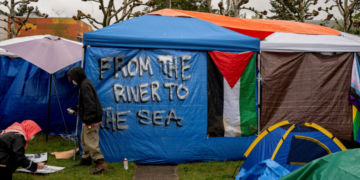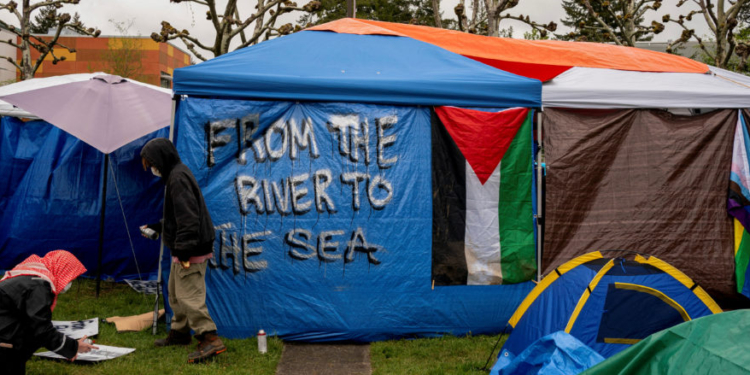We are living through a new wave of antisemitic violence, from college campuses to the streets of our major cities. Why is this happening and why do our leaders do so little to stop it?
To understand, you need to look back at the event that set the pattern, the worst antisemitic riot in American history, which happened in the Crown Heights neighborhood of Brooklyn, N.Y, in August 1991. The riot raged for three days before the city put a stop to it. Why? I just made a short film to answer that question.
The riot was started by a traffic accident but rapidly escalated to murder. The last car of a motorcade escorting the grand rabbi of Chabad-Lubavitch ran either a yellow or red light, hit a car in the intersection, careened off it, the pinned two young Black children, tragically killing one of them. A crowd of young Black men gathered, claiming the accident was done on purpose and that Jews get away with everything. As the mob prowled the streets, they found a young Hasidic man and, shouting “Get the Jew,” beat and stabbed him. He died of his wounds.
The next day the Rev. Al Sharpton and others came to Crown Heights. Soon crowds were burning police cars and trashing Jewish stores, chanting “Heil Hitler” and “Hitler didn’t finish the job.” During our interview with him, Sharpton acknowledged the antisemitic chants in his marches, but blames other outsiders for instigating them. The New York Times and other media consistently got the story wrong, claiming that Jews and Blacks were both fighting each other, in fact, the violence only went one way.
New York City’s first Black mayor, David Dinkins, and his police chief let the riot go on for three days. When, finally, they themselves were attacked, they ended it in three hours. Why the delay?
Mayor Dinkins was clearly no antisemite or lover of street violence. I believe he thought he could not stand up to the progressive wing of his party, no matter what they said and did. The failure of the media to cover the story properly gave him cover to downplay the violence.
This pattern has repeated itself numerous times since, but most frequently in the recent surge of antisemitism: left-wing antisemitic violence erupts, the media gets the story wrong, leaders do too little, too late. Last year, on college campuses, demonstrators chanted anti-Zionist slogans — such as “From the river to the sea” and “There is only one solution, Intifada Revolution” — calling for violence against Zionists, often just a code word for Jews.
Even when Jewish students were physically attacked and made to feel unsafe, college presidents did nothing or very little. Were these chants and attacks aimed at Black or LGBT+ students, who can doubt that college presidents would act, rightly, to protect those students.
Our film ends with another Jewish man knifed on the streets of Crown Heights, just weeks ago. This time his attackers shouted “Free Palestine.” This new incident got little coverage beyond New York City. Antisemitic violence is often no longer news and is sparsely reported. If we want a different result in the future, we need to break the pattern.
The first step is to understand the pattern and its origin in the 1991 riot. Next, we must insist that our leaders act quickly and decisively against antisemitic violence, whether from the right or, now more frequently, from the left. If not, we will only get more of it.
Michael Pack is a documentary filmmaker whose most recent film is “Get the Jew”: The Crown Heights Riot Revisited, available, free on WSJ.com/opinion. He has also produced and directed 15 award-winning, national broadcast documentaries for public television.
The views and opinions expressed in this commentary are those of the author and do not reflect the official position of the Daily Caller News Foundation.
All content created by the Daily Caller News Foundation, an independent and nonpartisan newswire service, is available without charge to any legitimate news publisher that can provide a large audience. All republished articles must include our logo, our reporter’s byline and their DCNF affiliation. For any questions about our guidelines or partnering with us, please contact [email protected].


























